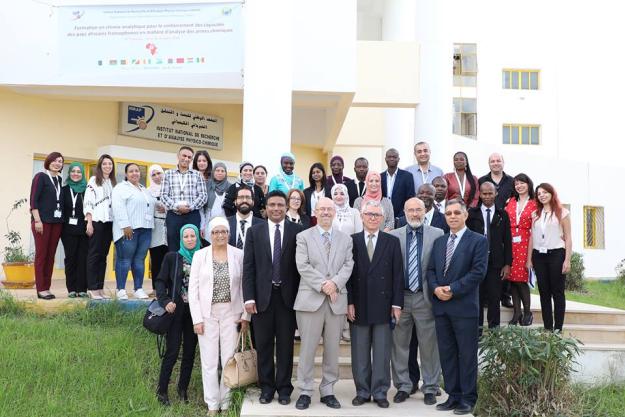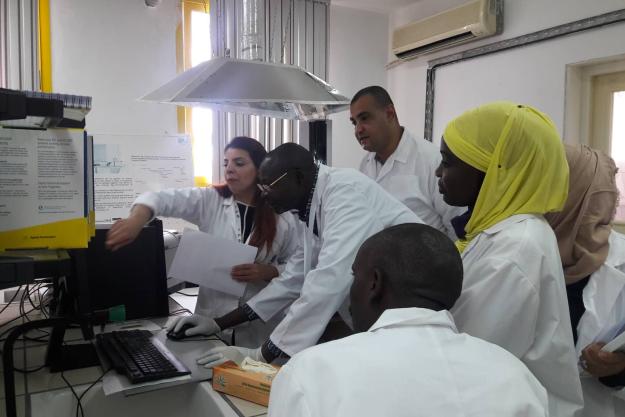
Laboratory specialists from 13 African Member States of the OPCW attending the fourth Analytical Chemistry Course
THE HAGUE, Netherlands – 26 October 2018 — Laboratory specialists from 13 African Member States of the Organisation for the Prohibition of Chemical Weapons (OPCW) advanced their skills in the analysis of chemicals relevant to the Chemical Weapons Convention (CWC), during the fourth Analytical Chemistry Course held in Sidi Thabét, Tunisia, from 16-26 October.
The course was attended by 15 French-speaking participants, and organised by the OPCW and the Tunisian National Institute for Research and Physical and Chemical Analysis (INRAP).
In his opening remarks, INRAP’s Director General, Professor Mohamed Hammami, underlined the benefits of OPCW’s capacity building programmes not only for the development of technical laboratory skills, but also for the promotion of the culture of chemistry for peace in Africa.
The ceremony was also attended by Mr Rohan Perera, representing OPCW’s Technical Secretariat. “Initiatives such as this course embody one of the OPCW’s core values – that chemistry should only be practiced for peaceful purposes,” stated Mr Perera.
The attendees learned about the main provisions of the Convention, and the OPCW’s mission and activities, with special focus on verification. The practical segment included training in Gas Chromatography (GC) and Gas Chromatography-Mass Spectrometry (GCMS) for the analysis of chemicals related to the Convention. Good laboratory practice, sample preparation and the application of the OPCW Central Analytical Database (OCAD) in compound identification were also covered.
The participants represented the following OPCW Member States: Algeria, Burkina Faso, Burundi, Cameroon, Cote D’Ivoire, Democratic Republic of the Congo, Madagascar, Mali, Mauritius, Morocco, Senegal, Togo, and Tunisia.
The course, part of OPCW’s Programme to Strengthen Cooperation with Africa, was supported by the European Union.

Laboratory specialists from 13 African Member States of the OPCW attending the fourth Analytical Chemistry Course
Background
The OPCW analytical chemistry courses are designed for chemists from laboratories in Member States with the objective of building domestic capacity and promoting international cooperation in the field of peaceful uses of chemistry.
The Programme to Strengthen Cooperation with Africa focuses on activities and interventions to respond to particular needs of African States Parties.
As the implementing body for the Chemical Weapons Convention, the OPCW, with its 193 Member States, oversees the global endeavour to permanently eliminate chemical weapons. Since the Convention’s entry into force in 1997, it is the most successful disarmament treaty eliminating an entire class of weapons of mass destruction.
Over 96% of all chemical weapon stockpiles declared by possessor States have been destroyed under OPCW verification. For its extensive efforts in eliminating chemical weapons, the OPCW received the 2013 Nobel Peace Prize.
